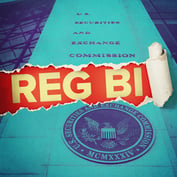The Social Security Administration is in the middle of a mammoth battle to streamline the notoriously slow, frustrating Social Security Disability Insurance claim determination process.
Each state has its own claim review culture, and many seriously disabled applicants who are in dire financial straits must spend years filing appeals to get benefits.
Private disability insurers have a keen interest in the success of the reform effort, because many use SSDI eligibility information in their own review process, and some try to coordinate private benefits payments with SSDI payments.
The Social Security Administration recently ended the public comment period for a proposed regulation introduced in July that would create a new, fast-track system for evaluating applicants who are “obviously disabled,” officials say.
Other provisions would establish a Federal Expert Unit that could help claim reviewers assess applicants, replace a state-level claim denial reconsideration process with reviews at the federal level, set up a national version of an electronic claim processing system that is now being tested, and limit applicants’ ability to add new information once an administrative law judge has made a decision.
Laura Favinger, an assistant vice president at UnumProvident Corp., Chattanooga, Tenn., and Rod Turner, a vice president at America’s Health Insurance Plans, Washington, have submitted comment letters suggesting that private insurers could play a role in strengthening the SSDI disability determination process.
Both Favinger and Turner recommend that the Social Security Administration consider turning to private insurers and their medical networks for help with developing the Federal Expert Unit.
Favinger emphasizes the importance of providing adequate compensation for the experts who would help with medical evaluations. “A thorough and appropriate medical review of even one complex case could result in the savings of unnecessary legal fees and other costs in aggregate over time,” Favinger writes.
At AHIP, Turner suggests that, with the consent of claimants, the SSA should find a way to use private disability insurers’ electronic claim files.








 October 27, 2005 at 08:00 PM
October 27, 2005 at 08:00 PM










